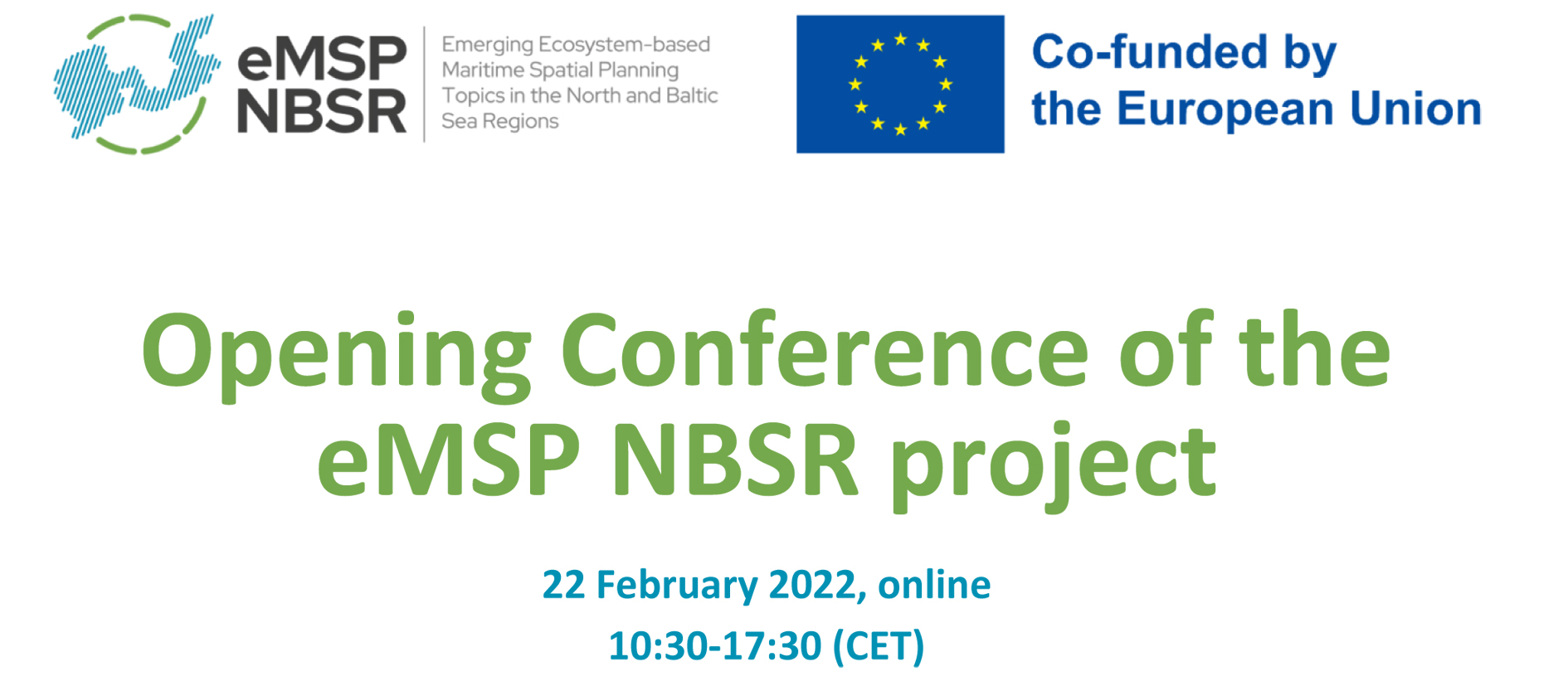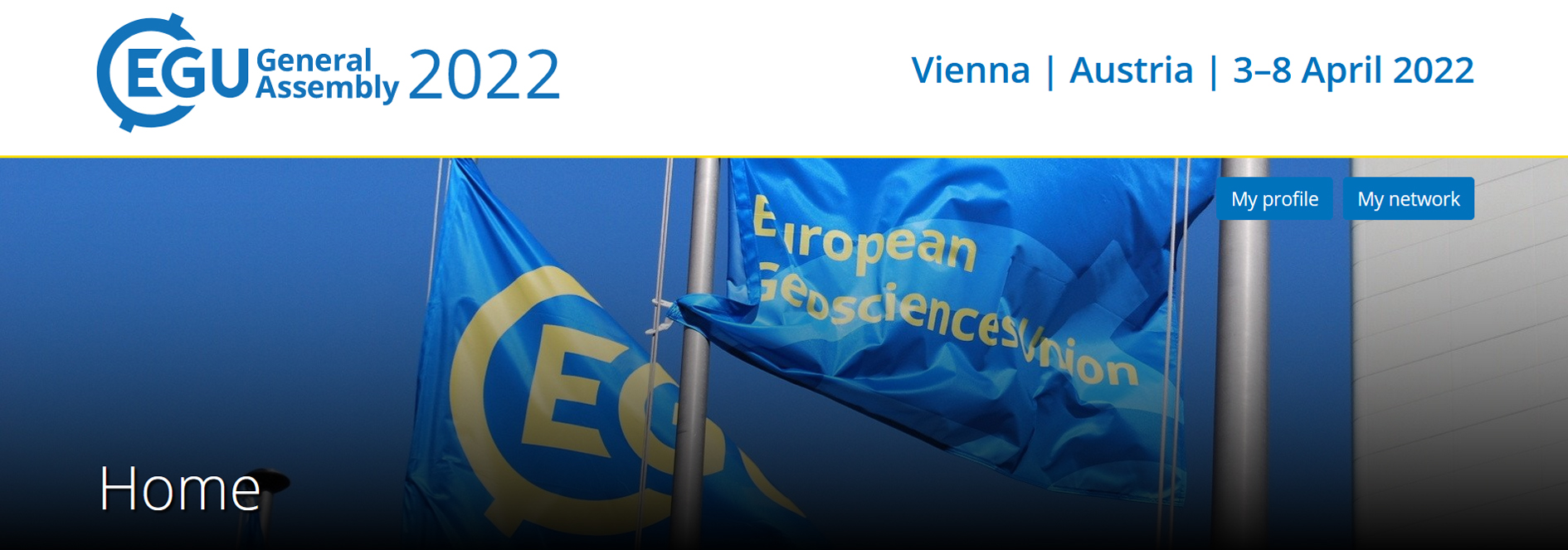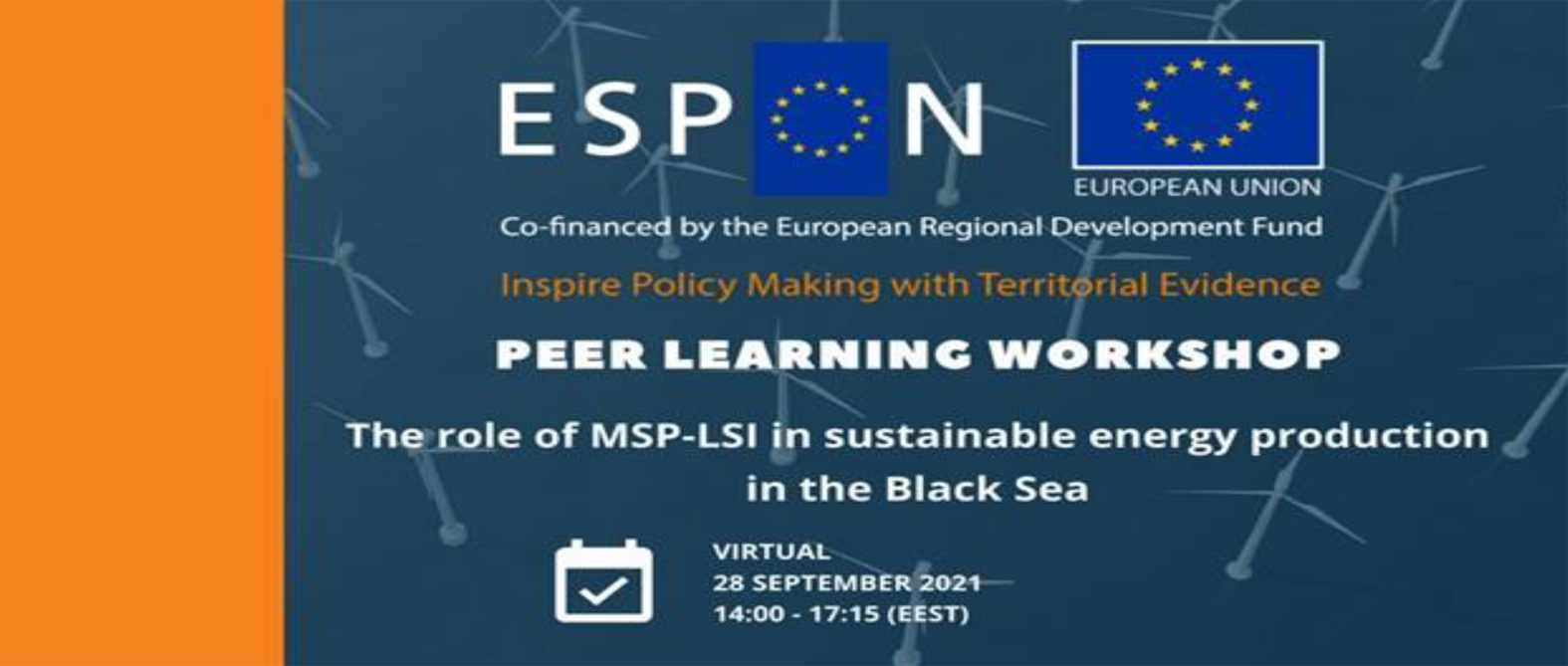Upcoming Events
Opening Conference of the eMSP NBSR project

The opening conference of the eMSP project will be organized on the 22nd of February, 10:30-17:30 CET, online. Aim of the conference is to introduce the topics and working methods of the eMSP NBSR project, as well as to discuss opportunities of stakeholders to get involved in project activities.
The opening conference of the eMSP NBSR project will introduce the Communities of Practice (CoP) partners are building within learning strands presenting five emerging MSP topics:
• Ocean governance
• Ecosystem-based approach
• Sustainable blue economy
• Monitoring and evaluation
• Data sharing, information and communication technology serving MSP.
Science policy interface will facilitate the knowledge gained throughout the project by providing scientific advice in the learning strands and establishing a project scientific advisory board.
Throughout the opening conference participants will have a chance to learn more about the Green Deal aspects to be considered in MSP, methods of the ‘Community of Practice’ and ‘Scientific Advisory Board’ and contribute to the discussions within the learning strands.
Download agenda HERE.
Registration to the conference is available HERE.
SAFE THE DATE: Final Conference of the project "Cross-border Maritime Spatial Planning for the Black Sea - Bulgaria and Romania" - MARSPLAN-BS II

We are pleased to invite you on 25 November 2021 at 10.00 (EET) to the Final Conference of the project "Cross-border Maritime Spatial Planning for the Black Sea - Bulgaria and Romania" - MARSPLAN-BS II with leading partner and host - the Ministry of Regional Development and Public Works of Republic of Bulgaria.
The project is implemented with the financial assistance of the European Climate, Infrastructure and Environment Agency (CINEA) at the European Maritime and Fisheries Fund under the Multi-beneficiary Grant Agreement EASME/EMFF/2018/ 1.2.1.5/01/SI2.806725, within 30-month period - from July 2019 till the end of 2021 by a consortium composed of eight partners from Bulgaria and Romania. Its main goal is to support coordinated cross-sectoral Maritime Spatial Planning in Bulgaria and Romania in the framework of the EU Directive 2014/89 / EU and to establish a long-term mechanism for cross-border cooperation in the Black Sea basin.
Project partners from Bulgaria are: National Center for Regional Development, Center for Coastal and Maritime Studies–Varna and “Nikola Vaptsarov” Naval Academy–Varna. The Romanian partners are: Ministry of Development, Public Works and Administration, GeoEcoMar, National Institute for Marine Research and Development „Grigore Antipa“ and Ovidius University of Constanta.
EGU2022 GM6.7 Session: Coastal zone geomorphologic interactions: natural versus human-induced driving factors

We are pleased to invite abstracts to the following EGU2022 GM6.7: Coastal zone geomorphologic interactions: natural versus human-induced driving factors
Conveners: Margarita Stancheva, Andreas Baas, Hannes Tõnisson, Guillaume Brunier, Giorgio Anfuso
Coastal zones worldwide face numerous pressures of anthropogenic impact, including urbanization, pollution, and resource extraction. Associated problems include coastal erosion, often aggravated by hard engineering responses, and pollution of waters and sediments affecting ecology and human health.
This session explores the interactions between natural geomorphic processes and human interventions in the coastal zone. Topics include work on predicting shoreline change and the effects of human activities on the coast, including coastal vulnerability to natural and human-related hazards, coastal and environmental sensitivity classifications and risk assessments, impacts on coastal dune fields, eco-restoration and re-building of coastal environments, Marine Spatial Planning, and Integrated Coastal Management.
ESPON Peer learning Workshop: The role of MSP-LSI in sustainable energy production in the Black Sea
When: September 28 2021, from 2:00 pm to 5:15 pm
This ESPON Peer Learning Workshop (PLW) will focus on the green offshore energy potentials of the Black Sea and also on how these potentials could be best exploited in an economically and ecologically sustainable way.
Therewith, this Peer Learning Workshop will also be focused on sharing experiences regarding integrated terrestrial and maritime spatial planning with the maximum sustainable impact on both the sea and the adjoining coastal areas and hinterland. As such, the PLW will feed into MARSPLAN-BS II, wherein both Romania and Bulgaria are in process of elaborating their national spatial maritime plans, in cooperation with their neighbours.
Follow the ESPON website for registration.

